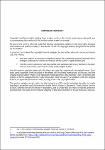‘The more empowered I feel, the more vulnerable I become’: Exploring the entanglements of Human Rights Education (HRE), legal discourses and notions of agency and vulnerability amongst Human Rights Educators in Colombia
| dc.contributor.supervisor | Quinn, Jocey | |
| dc.contributor.author | Blandon, Claudia Maria | |
| dc.contributor.other | Faculty of Arts and Humanities | en_US |
| dc.date.accessioned | 2024-03-05T09:36:40Z | |
| dc.date.available | 2024-03-05T09:36:40Z | |
| dc.date.issued | 2024 | |
| dc.identifier | 10513652 | en_US |
| dc.identifier.uri | https://pearl.plymouth.ac.uk/handle/10026.1/22123 | |
| dc.description.abstract |
In the 21st century, notions of human rights are symbols of dignity, freedom, and equality (UNDHR, 1948) and equated with notions of empowerment. Simultaneously, in an epoch of recurrent waves of displacement, international instruments of protection are failing to safeguard displaced people and those who provide sanctuary. By the end of 2022, 104 million people had been forcibly displaced globally because of conflict and human rights violations (UNHCR, 2023). Against this global backdrop, empowering women through human rights education and legal discourses has become a priority, (Bajaj et al., 2017, Altinova et al., 2019). With a firm conviction that the production of knowledge should be ‘about making a difference in the world and understanding the what, where, when, how, and for whom differences matter’ (Barad, 2007 in Ringrose & Renold, 2014:772-773), this research disrupts normative notions of empowerment that disregard women’s material conditions and are primarily informed by human rights and legal discourses. Consequently, this study is grounded on human rights Educators’ experiences of empowerment and vulnerability in a context of protracted violence and forced displacement. It brings together forced migration studies, human rights education, and feminist new materialist epistemologies to explore how multiple entanglements of HRE programmes, legal instruments and other discourses shape women Educators’ conceptions of agency and vulnerability in Colombia. The research draws on data from observation of HRE sessions, document analysis of Colombian Law 1257 (2008), communications and interviews with twelve human rights Educators, in addition to auto-ethnography. Through a triple-epistemological lens, a relational approach to ethics, thematic and diffractive analysis, this research shows that, at a ground level, notions of agency are conceived as an assemblage of indigenous practices of healing and protection, the more-than-human, as well as human rights and legal discourses. Therefore, this study advances a posthuman cartography of agency (PCA) as a conceptual tool that sees notions of agency as contextual, multiple, relational, spatial, and temporal. A PCA suggests that a sense of agency is revitalised and not conferred, and as such, the notion of ‘revitalisation’ of knowledge is preferred to that of empowerment. This conceptual shift is significant in reassessing hierarchical and anthropocentric understandings of empowerment. It can also inform better pedagogical HRE practices and more effective protection policies for displaced people globally. | en_US |
| dc.description.sponsorship | University of Plymouth Institute of Education Doctoral Teaching Assistant Funding | en_US |
| dc.language.iso | en | |
| dc.publisher | University of Plymouth | |
| dc.rights | Attribution-NonCommercial-NoDerivs 3.0 United States | * |
| dc.rights.uri | http://creativecommons.org/licenses/by-nc-nd/3.0/us/ | * |
| dc.subject | human rights education, forced migration, refugee studies, feminist vibrant materialism, agency, vulnerability | en_US |
| dc.subject.classification | PhD | en_US |
| dc.title | ‘The more empowered I feel, the more vulnerable I become’: Exploring the entanglements of Human Rights Education (HRE), legal discourses and notions of agency and vulnerability amongst Human Rights Educators in Colombia | en_US |
| dc.type | Thesis | |
| plymouth.version | publishable | en_US |
| dc.identifier.doi | http://dx.doi.org/10.24382/5156 | |
| dc.rights.embargoperiod | No embargo | en_US |
| dc.type.qualification | Doctorate | en_US |
| rioxxterms.version | NA | |
| plymouth.orcid_id | 0000-0002-3375-0989 | en_US |
Files in this item
This item appears in the following Collection(s)
-
01 Research Theses Main Collection
Research Theses Main



